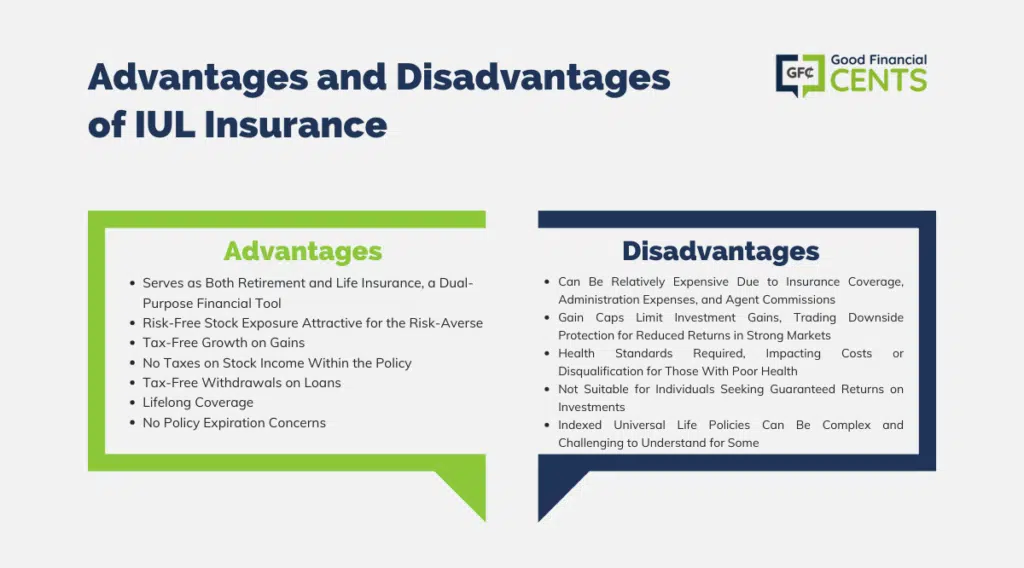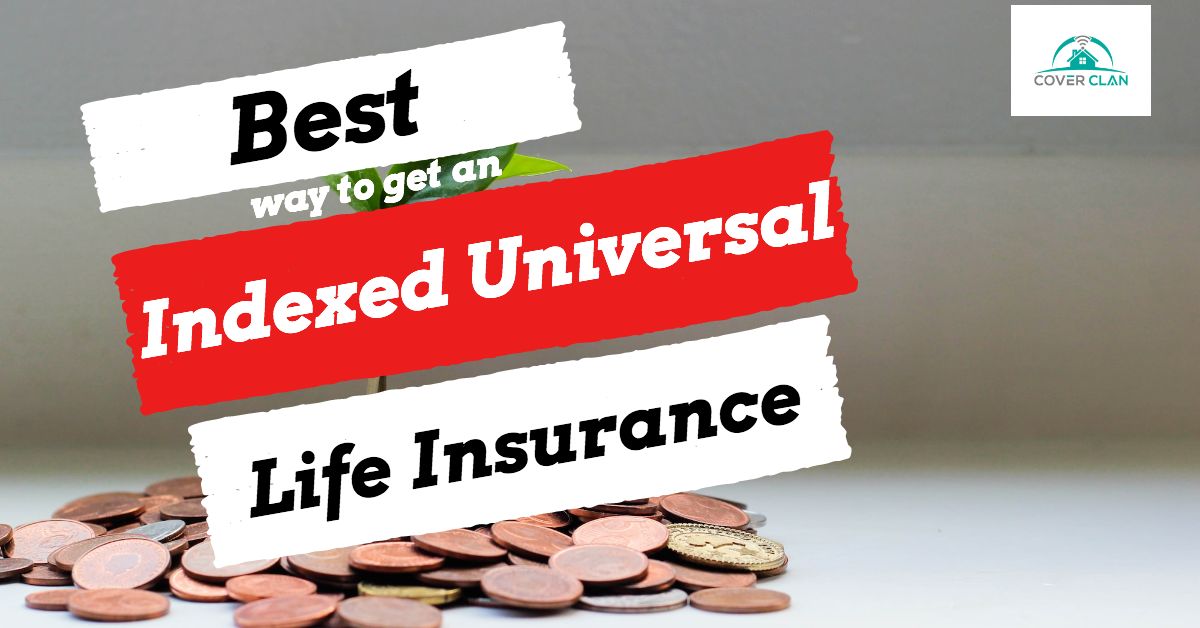All Categories
Featured
Table of Contents
Do they contrast the IUL to something like the Lead Total Stock Market Fund Admiral Shares with no lots, an expenditure proportion (EMERGENCY ROOM) of 5 basis points, a turn over ratio of 4.3%, and an exceptional tax-efficient document of distributions? No, they compare it to some awful proactively managed fund with an 8% tons, a 2% EMERGENCY ROOM, an 80% turn over proportion, and a horrible document of short-term capital gain circulations.
Shared funds frequently make yearly taxable circulations to fund proprietors, even when the value of their fund has actually gone down in worth. Shared funds not only need revenue coverage (and the resulting annual tax) when the mutual fund is going up in value, yet can additionally impose income taxes in a year when the fund has gone down in worth.
That's not how shared funds function. You can tax-manage the fund, gathering losses and gains in order to decrease taxed circulations to the investors, however that isn't in some way mosting likely to change the reported return of the fund. Only Bernie Madoff types can do that. IULs avoid myriad tax traps. The possession of shared funds might call for the mutual fund owner to pay projected tax obligations.

IULs are simple to position so that, at the owner's death, the beneficiary is exempt to either income or estate tax obligations. The exact same tax reduction techniques do not function nearly also with common funds. There are numerous, usually costly, tax traps connected with the timed acquiring and marketing of common fund shares, traps that do not put on indexed life Insurance policy.
Opportunities aren't extremely high that you're mosting likely to be subject to the AMT as a result of your common fund distributions if you aren't without them. The remainder of this one is half-truths at best. While it is true that there is no revenue tax obligation due to your successors when they inherit the earnings of your IUL policy, it is likewise real that there is no earnings tax due to your heirs when they acquire a mutual fund in a taxable account from you.
What Is No Lapse Universal Life Insurance
There are better ways to avoid estate tax obligation problems than buying financial investments with reduced returns. Mutual funds may create income taxes of Social Protection advantages.

The growth within the IUL is tax-deferred and might be taken as free of tax revenue via finances. The plan owner (vs. the common fund manager) is in control of his or her reportable earnings, hence allowing them to decrease or also remove the taxes of their Social Security advantages. This one is excellent.
Below's one more marginal concern. It holds true if you buy a mutual fund for say $10 per share simply before the circulation date, and it distributes a $0.50 distribution, you are then mosting likely to owe tax obligations (most likely 7-10 cents per share) although that you have not yet had any gains.
In the end, it's truly regarding the after-tax return, not how much you pay in tax obligations. You are mosting likely to pay even more in taxes by using a taxable account than if you get life insurance policy. You're likewise possibly going to have even more money after paying those taxes. The record-keeping requirements for owning common funds are significantly a lot more intricate.
With an IUL, one's records are kept by the insurer, copies of annual statements are mailed to the proprietor, and distributions (if any type of) are completed and reported at year end. This is likewise kind of silly. Naturally you ought to maintain your tax obligation documents in instance of an audit.
Life Insurance Stock Market
All you have to do is push the paper into your tax folder when it reveals up in the mail. Rarely a factor to purchase life insurance policy. It resembles this guy has actually never ever bought a taxable account or something. Common funds are typically part of a decedent's probated estate.
In enhancement, they are subject to the hold-ups and expenditures of probate. The profits of the IUL policy, on the various other hand, is constantly a non-probate circulation that passes beyond probate straight to one's named beneficiaries, and is for that reason not subject to one's posthumous financial institutions, unwanted public disclosure, or comparable hold-ups and expenses.
We covered this one under # 7, yet simply to wrap up, if you have a taxed mutual fund account, you have to place it in a revocable trust fund (or also less complicated, make use of the Transfer on Fatality classification) to avoid probate. Medicaid incompetency and lifetime revenue. An IUL can offer their owners with a stream of earnings for their entire lifetime, despite how much time they live.

This is advantageous when organizing one's events, and transforming assets to earnings before an assisted living home confinement. Common funds can not be converted in a comparable manner, and are almost always taken into consideration countable Medicaid assets. This is an additional foolish one promoting that bad individuals (you know, the ones who need Medicaid, a government program for the poor, to spend for their assisted living home) need to make use of IUL rather than shared funds.
What Is Fixed Universal Life Insurance
And life insurance policy looks terrible when compared relatively against a retirement account. Second, people who have cash to get IUL above and past their pension are mosting likely to need to be terrible at handling money in order to ever before certify for Medicaid to spend for their assisted living facility prices.
Persistent and terminal disease cyclist. All policies will certainly enable an owner's very easy accessibility to money from their policy, usually forgoing any abandonment penalties when such individuals experience a major health problem, need at-home treatment, or become confined to an assisted living home. Common funds do not provide a comparable waiver when contingent deferred sales charges still use to a common fund account whose proprietor requires to offer some shares to money the costs of such a stay.
What Is Iu L
You obtain to pay even more for that advantage (biker) with an insurance coverage policy. What a good deal! Indexed global life insurance coverage supplies death advantages to the beneficiaries of the IUL owners, and neither the owner nor the beneficiary can ever shed money as a result of a down market. Common funds give no such guarantees or survivor benefit of any kind.
I certainly don't require one after I reach monetary independence. Do I desire one? On standard, a purchaser of life insurance policy pays for the true cost of the life insurance policy benefit, plus the expenses of the policy, plus the earnings of the insurance coverage company.
Index Universal Life Insurance Companies
I'm not totally sure why Mr. Morais included the entire "you can not lose money" again right here as it was covered quite well in # 1. He simply wished to duplicate the most effective selling factor for these points I suppose. Again, you don't lose nominal bucks, but you can shed real dollars, in addition to face severe possibility price as a result of reduced returns.

An indexed global life insurance policy plan proprietor might trade their policy for a totally various policy without causing earnings tax obligations. A mutual fund owner can stagnate funds from one mutual fund business to another without marketing his shares at the former (thus setting off a taxable occasion), and repurchasing new shares at the last, usually based on sales charges at both.
While it holds true that you can exchange one insurance plan for another, the reason that people do this is that the initial one is such a terrible plan that even after buying a new one and going with the early, negative return years, you'll still come out in advance. If they were sold the ideal policy the very first time, they should not have any kind of need to ever before exchange it and undergo the very early, unfavorable return years once again.
Latest Posts
Best Guaranteed Universal Life Insurance Companies
Universal Life Insurance Vs Term Life
Universal Life Insurance Questions